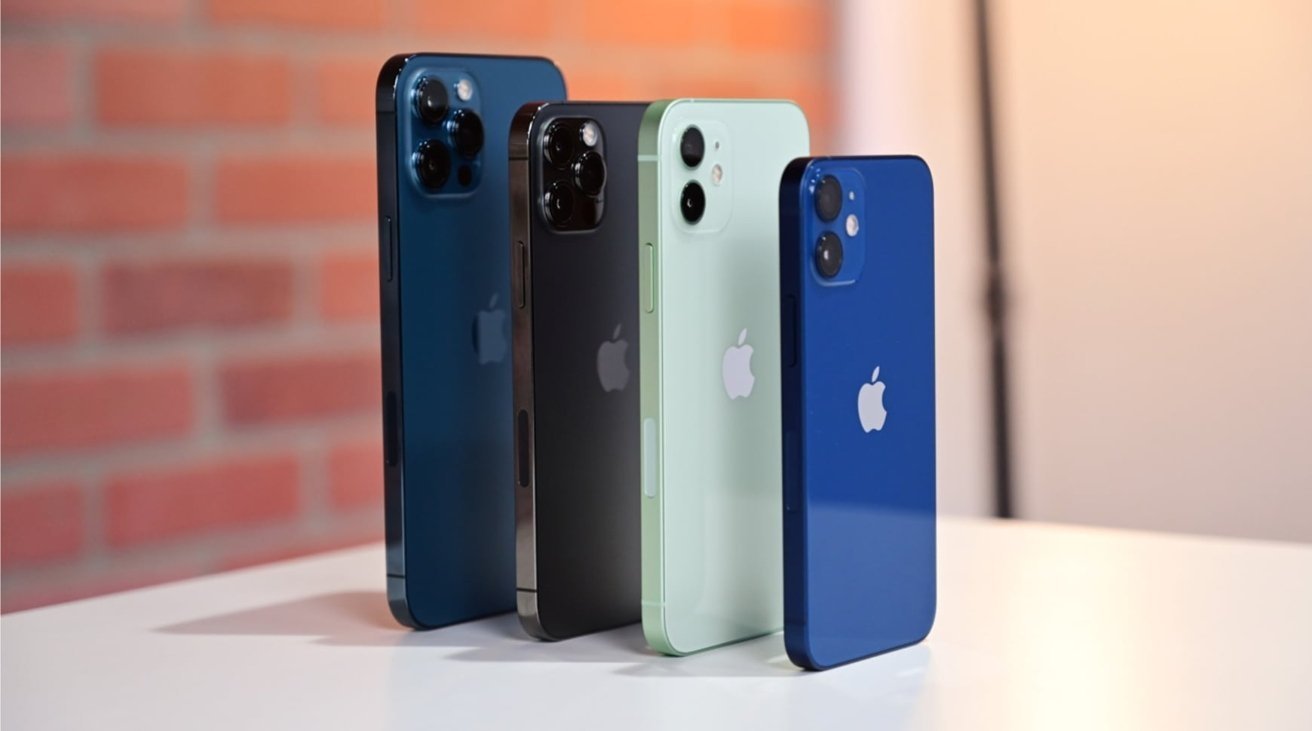As expected, Apple has refuted French ministry claims that the iPhone 12 exceeds legal limits for radio frequency exposure, and will fight the sales ban.
Apple has said that it has provided France's radiation watchdog, Agence nationale des frequences (ANFR), with documentation from multiple international regulatory agencies. All of the data provided shows that Apple is in compliance with limits, everywhere in the world.
The company has also said that it is contesting the results of the AFNR testing. It is not stopping communication with the agency, but rather, will continue the discussion to ensure that the model is not discontinued.
Apparently, the AFNR very recently retested 141 mobile phone models, leading to its discovery about the iPhone 12. It's not yet clear if any other manufacturers are impacted by the new round of testing.
Apple had a two-week limit to "respond" to the claims. It's not clear if the response given by Apple meets that timeline, or if the clock is still ticking to a complete recall of the iPhone 12. Also not clear is if every iPhone 12 model is impacted, or one specific version.
"Apple is expected to respond within two weeks", Jean-Noel Barrot, France's junior minister for the Digital economy said on Tuesday. "If they fail to do so, I am prepared to order a recall of all iPhones 12 in circulation. The rule is the same for everyone, including the digital giants."
Radio frequency power versus ionizing radiation
RF radiation is not the same as ionizing radiation generated by decay of radioactive isotopes, and from the sun itself — and the mechanism of damage is different. Ionizing radiation breaks the bonds in cells, where sufficiently high levels of RF radiation can heat tissue and could theoretically cause tissue damage.
While radiation exposure is measured in gray, sieverts, or rem per hour, depending on country, Specific Absorption Rate (SAR) is more universal. SAR is a measure of the rate at which the body absorbs RF energy. A SAR of 1 watt per kilogram would increase the temperature of an insulated slab of tissue by one degree Celsius per hour of exposure at that wattage, and does not account for the loss of that temperature increase from any other factor.
Unlike the trio of ionizing radiation measurement methods, SAR is a measure of that heat, and not an absolute measure of damage. Generated heat is what can theoretically cause damage from RF exposure, but the measurement — and how it is measured and regulated — is controversial.
The ANFR claims to have found absorption at 5.74 watts per kilogram for its testing on-contact. The EU limit for on-contact exposure is 4 watts per kilogram.
ANFR did note, however, that the test at 5 centimeters from the broadcasting element to the ersatz tissue was in compliance with the international regulation of 2 watts per kilogram, which Apple's own testing confirms.
Apple's testing conforms to an international industry standard. As Apple says, during testing, iPhone radios are set to highest transmission possible manually and SAR is evaluated in real time, over time intervals as specified by applicable regulations. Apple says that its SAR testing is evaluated in positions that simulate uses against the head, with no separation, plus when worn or carried against the torso of the body, with 5mm separation.
Press releases about the issue were issued on Tuesday, but at publication time on Wednesday, still error out more than 24 hours after release.
 Mike Wuerthele
Mike Wuerthele







-m.jpg)






 Marko Zivkovic
Marko Zivkovic
 Christine McKee
Christine McKee
 Andrew Orr
Andrew Orr
 Andrew O'Hara
Andrew O'Hara
 William Gallagher
William Gallagher


 Bon Adamson
Bon Adamson


-m.jpg)



4 Comments
Apple will continue the discussion to ensure that the model [
Prediction: when the test is completed, the iPhone will pass with flying colours.
It's entirely possible that an insufficient number of tests was run - while it's more work, you can't rely on the results of a test without repeating it from start to finish (including setup and tear-down) at least twice. It's too easy to make a mistake in the setup that you don't notice the first time. If you get one anomalous reading out of three, you investigate further and repeat the entire process again.